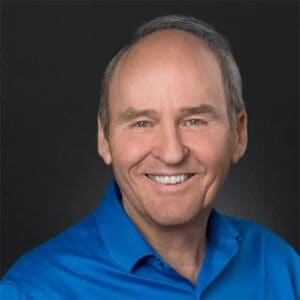
Highlights from the Psychotherapy Networker Conference
I just recently returned from the Psychotherapy Networker Symposium that took place March 22-24, in Washington, DC! As you may know, I like to share
A friend forgives another friend for gossiping about her. A husband forgives a wife for lying to him about her intimate relationship with another man. A mother forgives the man who murdered her daughter. The human capacity to forgive even the deepest wrongs is awe-inspiring.
For many people, forgiving others is liberation from anger and grievance, and it leads to a richer and happier life. But psychologists and others in the helping professions say there is an even deeper peace to be found through what might be the hardest act of all – forgiving yourself.
The first part of any conflict we must resolve is not between “me and my neighbor,” but between “me and me.” So believes author and therapist Thom Rutledge, who has written extensively on forgiveness and self-forgiveness.
In his bookThe Self-Forgiveness Handbook: A Practical and Empowering Guide, Rutledge writes that the resentment and grudges we hold against ourselves are every bit as destructive as those we harbor towards others. Every time we tune in to the inner dialogue that says we are not (smart, thin, rich, successful, good, etc.) enough or berate ourselves for what we did or didn't do, we are choosing to live in blame and resentment-only it's towards ourselves and not others. In the words of Buddhist monk and author Thich Nhat Hanh, to truly practice forgiveness we must first forgive ourselves for not being perfect.
Philosophers, religious leaders and others have known this for thousands of years; one of the basic tenets of most major religions is to love others as we love ourselves.
In her bookThe Unburdened Heart: Five Keys to Forgiveness and Freedom, author Mariah Burton Nelson writes, “When we treat ourselves with love and compassion, we become nicer to everyone else. We become less defensive. We don't worry so much what others' judgments might be, because we're not judging ourselves.”
Forgiving ourselves is not a selfish way to let ourselves off the hook for behaving badly. Rather, it is the result of looking deeply within ourselves, accepting our mistakes and failures, taking responsibility for our actions, and loving ourselves in spite of it all. Fred Luskin, psychologist and cofounder of the Stanford University Forgiveness Project, writes, “Forgiving is not about condoning bad behavior; it's about taking responsibility and becoming a hero and not a victim in the story you tell.”
To be able to say, “I behaved thoughtlessly (or unkindly, foolishly, etc.) and I forgive myself for not being perfect” could be the biggest-and most healing-act of all. For when you can forgive the imperfection in yourself, it's a lot easier to forgive them in others.
“Self-forgiveness is a commitment to love yourself no matter what,” Nelson says. “It's the generous act of giving yourself a break. Remembering that you're human. Offering yourself the loving kindness that you might offer, on your best days, to those you love the most, no matter what they've done.”
To order either of these books on Amazon, click the title below.
“The Self-Forgiveness Handbook: A Practical and Empowering Guide”
“The Unburdened Heart: Five Keys to Forgiveness and Freedom”
"*" indicates required fields
 We respect your privacy.
We respect your privacy.
"*" indicates required fields
 We respect your privacy.
We respect your privacy.
I just recently returned from the Psychotherapy Networker Symposium that took place March 22-24, in Washington, DC! As you may know, I like to share

I’ve specialized in working with couples for 40 years. A “back-of-the-envelope” calculation tells me that’s about 33,000 hours of couples work. You can bet I’ve

Couples often come to therapy with high hopes, vulnerability, and a spoken desire for transformation. They also come with years of pain, hostility, and unresolved
US: +16465588656, 82302466709# or +16469313860, 82302466709#
Webinar ID: 82302466709
 We respect your privacy.
We respect your privacy.